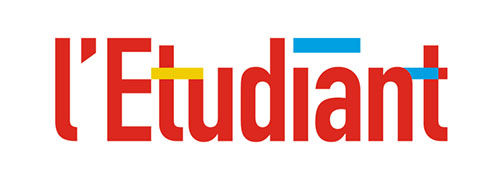
WHAT STATUS SHOULD YOU CHOOSE FOR YOUR INTERNATIONAL CAREER?
Are you considering an international career after you graduate from the American Business School of Paris? Congratulations! However, be careful to learn about the different types of contracts available. There are indeed different statuses for international workers, each with its own specificities, with possible consequences on your life and your potential future return to your country. Take the time to find out what these statuses are, but also to discuss it with your employer since some benefits can be negotiated: housing, company car, social security, schooling of children, plane tickets… Here is everything you need to know about international career statuses!

⧣1 THE EXPATRIATION CONTRACT
This is the contract that offers the most flexibility: you can benefit, for an indefinite period, either from your home country’s employment contract or from a local contract if you are hired specifically to work abroad. In the latter case, your original contract is suspended; you sign a contract with the company of your host country, which can also be a subsidiary of your home company. Note that your original contract is reactivated when you return to your country of origin. Your salary is paid by the host company, and you can negotiate and obtain an expatriation bonus.
In terms of social protection, you depend on your host country, unless there is an agreement between it and your home country. However, you can also choose a private insurance for your healthcare and/or retirement funds, in order to obtain better support. Similarly, your domiciliation tax may be in your home country or in your host country depending on your tax address and any possible agreement between the two countries.
⧣2 THE SECONDMENT OR POSTED WORKER CONTRACT
The posted worker status offers optimum security. With this type of contract, signed for a specified period (generally from 6 months to 3 years depending on the country), you keep your initial contract but also all your benefits in terms of health, retirement, unemployment or accident insurance in the event of an accident at work. This is simply an amendment to your original contract, the salary is still paid by your parent company, and you must be reinstated when you return to your home country as part of the “repatriation” process.
⧣3 THE LOCAL CONTRACT
The local contract applies when you decide to go abroad on your own, which means that you will be working under the rules and regulations of the host country.
In this case, you will be ill-advised not to learn upstream about the working conditions in the target country. Things like the legal duration of work, the number of days of paid leave, the rules in terms of breach of contract, but also the rules on social protection (health, retirement, protection in case of unemployment…) need to be known before packing your luggage. In addition, it is necessary to integrate the cost of living when evaluating the proposed salary to have a clear snapshot of what will be your financial situation. And don’t forget to learn about the host country’s tax obligations.
Last but not least, your country of origin may offer special guarantees to expatriates. If we take France for instance, French nationals can register at the “Caisse des Français Expatriés” for a relatively high fee. However, they benefit from a full health coverage when working abroad.
You should also know that thanks to intra-group mobility, it is possible to be offered a local contract by your original employer with one of its subsidiaries abroad. In this case, you can ask to be repatriated and reinstated within your parent company in case of dismissal by the local subsidiary.
⧣4 COMMUTING
There is an alternative to the statuses mentioned above, which makes it possible to expatriate oneself partially: commuting. Cross-border commuters are very common within EU countries. It enables the commuters to keep the social benefits of their home country.
You want start an international career? Discover the academic programs of the American Business School of Paris, a business school with a pedagogy based on the American system with a focus on international business!








